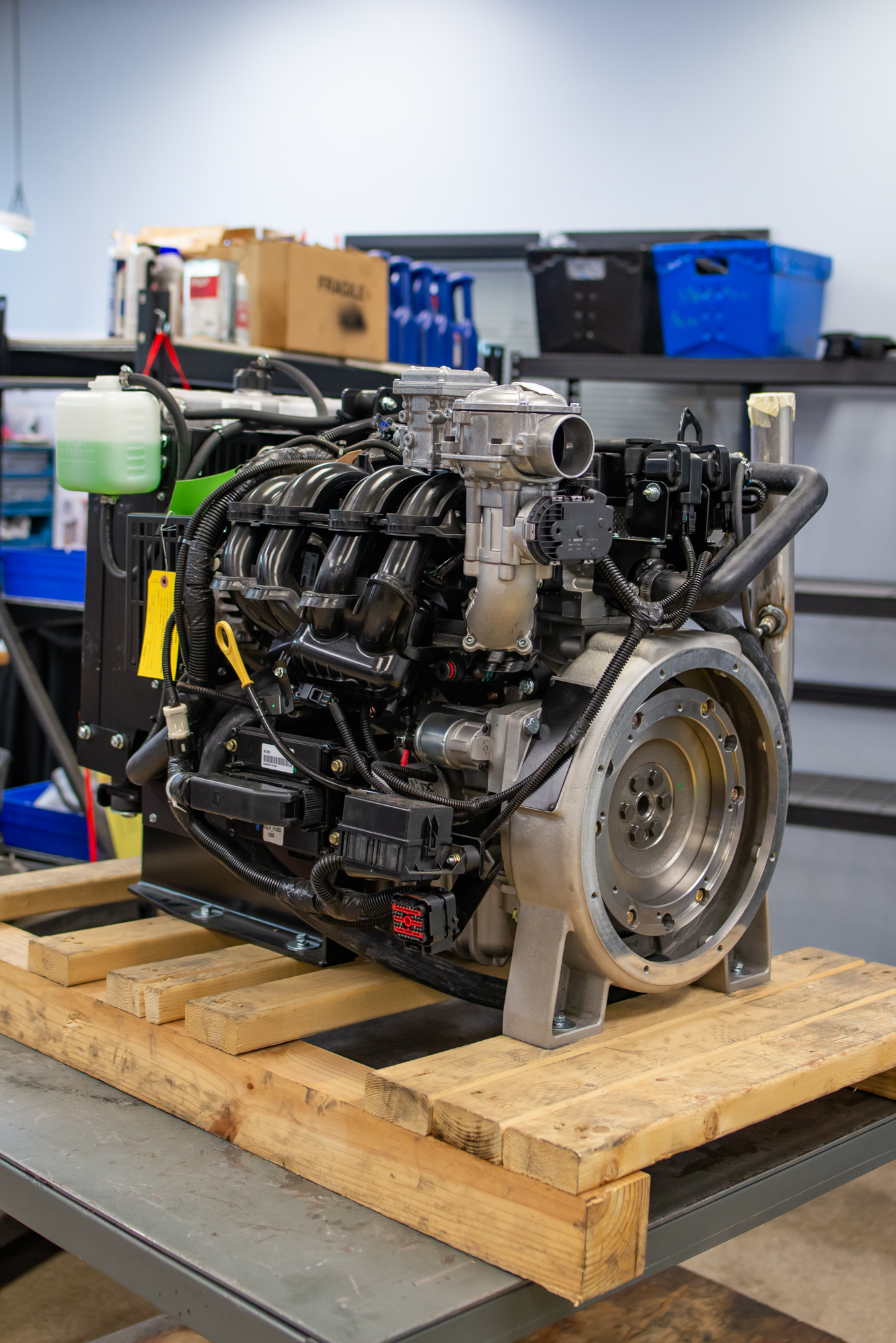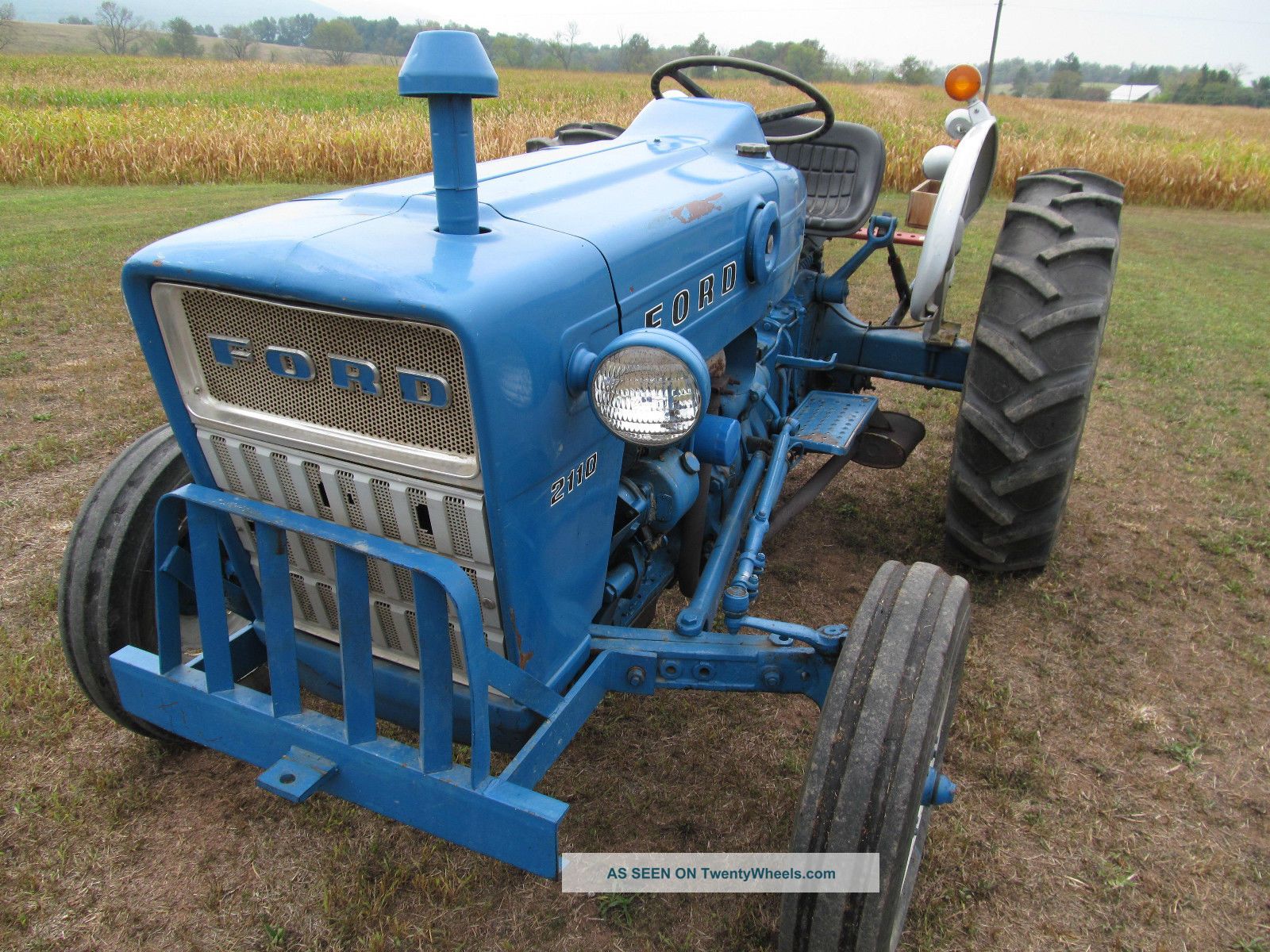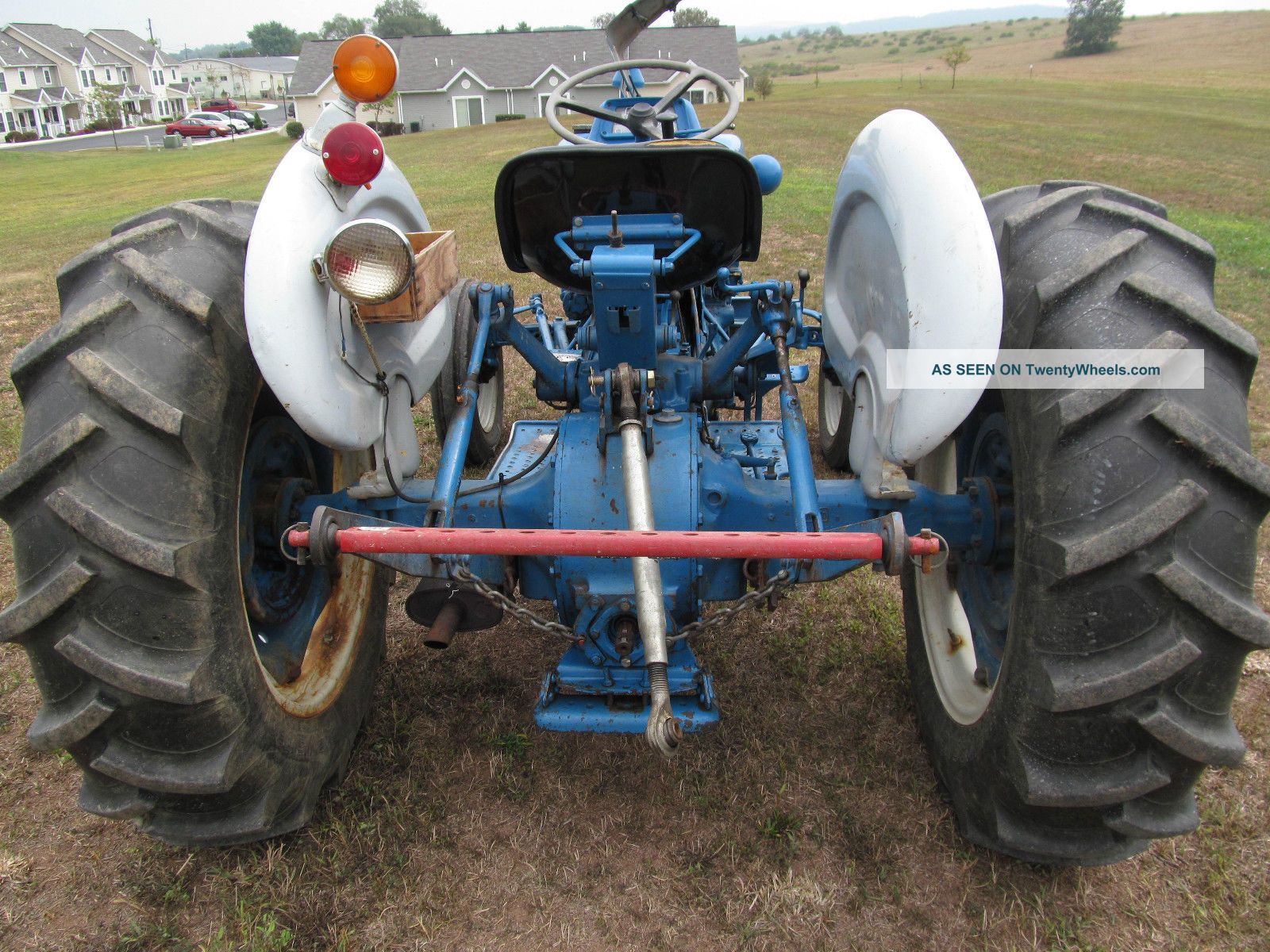Ford industrial engines have long been recognized as a symbol of durability, efficiency, and innovation in the automotive and industrial sectors. Whether you're looking to power heavy machinery, generators, or marine vessels, Ford's range of industrial engines offers unmatched performance and reliability. In this article, we'll explore everything you need to know about these powerful engines, from their history and applications to their cutting-edge technologies and future developments.
From humble beginnings to becoming a global leader in engine manufacturing, Ford has consistently pushed the boundaries of what engines can achieve. The brand's commitment to quality and innovation has made it a trusted choice for industries that demand nothing less than the best. Whether you're an engineer, a business owner, or simply someone curious about industrial engines, this article will provide valuable insights into the world of Ford industrial engines.
As we delve deeper into the topic, we'll cover various aspects, including the history of Ford industrial engines, their applications, key features, and how they compare to competitors. By the end of this article, you'll have a comprehensive understanding of why Ford industrial engines are a top choice for powering industrial applications worldwide.
Read also:Anthony Joshuas Girlfriend The Inside Story You Need To Know
Table of Contents
- The History of Ford Industrial Engines
- Applications of Ford Industrial Engines
- Key Features and Technologies
- Performance and Efficiency
- Maintenance and Longevity
- Comparison with Competitors
- Environmental Impact and Sustainability
- The Future of Ford Industrial Engines
- Cost and Value Considerations
- Conclusion
The History of Ford Industrial Engines
Ford's journey into the world of industrial engines began in the early 20th century when the company revolutionized the automotive industry with its Model T. Over the decades, Ford expanded its engine offerings to cater to a wide range of industrial applications. The development of Ford industrial engines marked a significant milestone in the company's history, showcasing its ability to adapt and innovate in response to market demands.
Key Milestones in Ford's Engine Development
Throughout its history, Ford has achieved several milestones in engine development. Below are some of the most notable achievements:
- 1932: Introduction of the Ford Flathead V8 engine, which became a cornerstone for future industrial applications.
- 1960s: Development of diesel engines for heavy-duty trucks and industrial use.
- 1990s: Launch of the Power Stroke engine series, renowned for its exceptional power and efficiency.
- 2000s: Incorporation of advanced technologies such as turbocharging and direct injection to enhance performance.
These milestones highlight Ford's commitment to continuous improvement and innovation in the field of industrial engines.
Applications of Ford Industrial Engines
Ford industrial engines are designed to meet the diverse needs of various industries. Their versatility and robust performance make them suitable for a wide range of applications, including agriculture, construction, mining, marine, and power generation.
Industries That Rely on Ford Industrial Engines
Below are some of the key industries that benefit from Ford industrial engines:
- Agriculture: Used in tractors, harvesters, and other farming equipment to ensure efficient and reliable operation.
- Construction: Powers excavators, bulldozers, and other heavy machinery, providing the strength needed for demanding construction projects.
- Mining: Equipped in mining trucks and drills to handle the harsh conditions of mining operations.
- Marine: Provides propulsion for boats and ships, ensuring smooth and powerful performance on water.
- Power Generation: Used in generators to supply electricity in remote areas or during emergencies.
Each of these applications highlights the versatility and adaptability of Ford industrial engines in various industries.
Read also:Penndot Photo Center Near Me Your Ultimate Guide To Finding The Best Photo Services
Key Features and Technologies
Ford industrial engines are equipped with several advanced features and technologies that set them apart from competitors. These features ensure optimal performance, efficiency, and durability in even the most challenging environments.
Advanced Technologies in Ford Industrial Engines
Some of the key technologies found in Ford industrial engines include:
- Turbocharging: Increases power output while maintaining fuel efficiency.
- Direct Injection: Enhances fuel combustion, resulting in better performance and reduced emissions.
- Cooling Systems: Advanced cooling mechanisms ensure engines operate at optimal temperatures, preventing overheating.
- Electronic Control Units (ECUs): Provide precise control over engine functions, optimizing performance and reducing wear.
These technologies work together to deliver exceptional performance and reliability, making Ford industrial engines a top choice for industrial applications.
Performance and Efficiency
Performance and efficiency are two critical factors that define the success of any industrial engine. Ford industrial engines excel in both areas, offering impressive power output while maintaining fuel efficiency and reducing emissions.
Studies have shown that Ford's Power Stroke engines, for example, deliver up to 450 horsepower and 1,050 lb-ft of torque, making them ideal for heavy-duty applications. Additionally, their fuel-efficient designs help reduce operating costs, making them a cost-effective solution for businesses.
Performance Metrics of Ford Industrial Engines
Below are some of the key performance metrics of Ford industrial engines:
- Horsepower: Ranges from 150 to 450 horsepower, depending on the model.
- Torque: Up to 1,050 lb-ft of torque for maximum pulling power.
- Fuel Efficiency: Improved fuel consumption rates due to advanced technologies like turbocharging and direct injection.
These metrics demonstrate the superior performance and efficiency of Ford industrial engines, making them a preferred choice for industrial applications.
Maintenance and Longevity
Proper maintenance is crucial for ensuring the longevity and reliability of industrial engines. Ford industrial engines are designed with ease of maintenance in mind, featuring accessible components and user-friendly service intervals.
Tips for Maintaining Ford Industrial Engines
To ensure optimal performance and longevity, follow these maintenance tips:
- Regular Oil Changes: Change engine oil and filters at recommended intervals to prevent wear and tear.
- Air Filter Replacement: Replace air filters regularly to ensure proper airflow and prevent engine damage.
- Cooling System Checks: Inspect and maintain the cooling system to prevent overheating.
- Fuel System Maintenance: Clean and maintain fuel injectors to ensure efficient fuel combustion.
By adhering to these maintenance practices, you can extend the lifespan of your Ford industrial engine and ensure it continues to perform at its best.
Comparison with Competitors
When it comes to industrial engines, Ford competes with several other brands, including Cummins, Caterpillar, and John Deere. While each brand offers its own set of advantages, Ford industrial engines stand out due to their combination of power, efficiency, and reliability.
How Ford Industrial Engines Compare
Below is a comparison of Ford industrial engines with some of their top competitors:
- Cummins: Known for its robust diesel engines, Cummins offers similar power and efficiency but may lack Ford's advanced technologies.
- Caterpillar: Renowned for its heavy-duty engines, Caterpillar excels in mining and construction applications but may be more expensive than Ford options.
- John Deere: Popular in agricultural applications, John Deere engines are reliable but may not match Ford's versatility across industries.
While each brand has its strengths, Ford industrial engines offer a balanced combination of performance, efficiency, and cost-effectiveness, making them a top choice for many industries.
Environmental Impact and Sustainability
In recent years, there has been a growing focus on reducing the environmental impact of industrial operations. Ford industrial engines are designed with sustainability in mind, incorporating technologies that minimize emissions and improve fuel efficiency.
Ford's Commitment to Sustainability
Ford has made significant strides in reducing the environmental impact of its industrial engines. Some of the key initiatives include:
- Adoption of cleaner fuel technologies to reduce emissions.
- Development of hybrid and electric engine options for certain applications.
- Partnerships with environmental organizations to promote sustainable practices.
These efforts demonstrate Ford's commitment to sustainability and its role in shaping a greener future for industrial operations.
The Future of Ford Industrial Engines
As technology continues to evolve, Ford is poised to lead the way in industrial engine innovation. The company is investing heavily in research and development to create engines that are even more powerful, efficient, and environmentally friendly.
Upcoming Developments in Ford Industrial Engines
Some of the key developments to watch for in the future include:
- Increased use of hybrid and electric technologies in industrial applications.
- Integration of artificial intelligence and machine learning to optimize engine performance.
- Development of new materials and manufacturing processes to enhance durability and reduce costs.
These advancements will further solidify Ford's position as a leader in the industrial engine market, offering solutions that meet the demands of a rapidly changing world.
Cost and Value Considerations
When evaluating industrial engines, cost is an important factor to consider. Ford industrial engines offer excellent value for money, combining affordability with superior performance and reliability.
While the upfront cost of a Ford industrial engine may vary depending on the model and application, the long-term savings in fuel efficiency, maintenance, and longevity make them a cost-effective choice for businesses.
Factors Affecting the Cost of Ford Industrial Engines
Below are some factors that influence the cost of Ford industrial engines:
- Engine Size and Power Output: Larger engines with higher power output tend to be more expensive.
- Technology and Features: Engines equipped with advanced technologies may come at a higher price point.
- Application and Industry: Specialized engines for certain industries may have higher costs due to customizations.
Despite these factors, Ford industrial engines consistently offer excellent value, making them a worthwhile investment for businesses of all sizes.
Conclusion
In conclusion, Ford industrial engines represent the pinnacle of power, efficiency, and reliability in the industrial sector. From their rich history and diverse applications to their advanced technologies and commitment to sustainability, Ford continues to set the standard for industrial engine performance.
We encourage readers to explore the wide range of Ford industrial engines available and consider how they can benefit your business. Whether you're in agriculture, construction, mining, marine, or power generation, Ford has a solution that meets your needs.
Don't forget to share your thoughts and experiences with Ford industrial engines in the comments below. For more insightful articles on industrial engines and related topics, be sure to explore our website further. Thank you for reading, and we hope this article has provided valuable insights into the world of Ford industrial engines!


